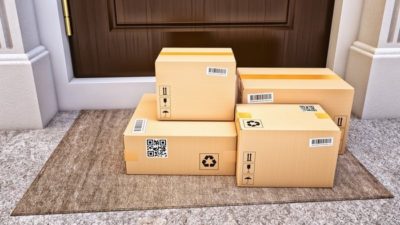This article was originally published on Fool.com. All figures quoted in US dollars unless otherwise stated.
Apple (NASDAQ: AAPL) appeared to catch the market by surprise when it recently announced plans to offer a buy now, pay later (BNPL) offering in its wallet app, another step into the financial services space for the consumer tech giant. Many have long feared that tech giants like Apple could one day become banks and offer traditional financial services because of their superior customer acquisition and tech capabilities. With Apple continuing to walk and talk more like a bank, could the company ever get a banking charter and become one?
The BNPL offering
Customers who use Apple's wallet app to purchase items will have the option to put no money down and pay off the purchase through multiple installment payments with no extra fees or interest attached. The buy now, pay later payment format has become wildly popular among consumers and also has helped merchants increase sales.
To start, this will be a challenge to others in the BNPL space because of how well integrated the offering is. But Apple is also planning to fund the loans from its own balance sheet and make loan underwriting decisions through its own subsidiary, called Apple Financing. Typically, a lot of consumer tech companies will turn to partner banks to help them set up this kind of infrastructure, which is why this announcement has attracted so much interest.
Apple is still partnering with Mastercard to help it set up its BNPL offering. Mastercard has a white-label product and still communicates with the vendors to make the process possible. Goldman Sachs is the issuer of Apple's credit card. Apple Financing has also apparently obtained all of the necessary state licenses to issue the BNPL loans.
Getting a bank charter
While it's very uncommon for a large tech company to outright obtain a bank charter, large payments and tech company Block did manage to obtain an industrial bank charter after a very lengthy process. An industrial bank charter is for a state-chartered bank with insurance from the Federal Deposit Insurance Corp. (FDIC), but it is a bit more limited in nature.
So, while Apple could try to pursue a bank charter, I doubt it would, given how long the process might take and the pushback it might receive from the banking industry and other regulators due to antitrust concerns. With more than 1.8 billion active iPhones, if Apple did ever pursue a charter and get more involved in traditional banking services, there could be concerns over data privacy.
A recent example that comes to mind is Meta Platforms' foray into stablecoins, which are digital assets pegged to a commodity or fiat currency. Meta for years sank time and resources into building a U.S. dollar-backed stablecoin called Diem, but kept running into regulatory issues. The company tried partnering with an issuing bank for the token but eventually ended up selling the project. Many surmise that regulatory issues were the primary reason for the sale.
Finally, keep in mind that banking is a very heavily regulated industry, with most banks having three regulators. Even Block, with its industrial charter, is still regulated by the FDIC and the Utah Department of Financial Institutions. And then once a company is a bank, it has to raise and hold regulatory capital, which investors are not always so thrilled about.
Will it ever happen?
I find it unlikely that Apple would ever pursue a bank charter due to pushback from regulators, the lengthy application process, and the need to hold regulatory capital. But perhaps after setting up and running some of its banking infrastructure, Apple will get more interested, especially if it sees serious profit potential. But even without getting a charter, the fact that Apple is bringing its loan underwriting under its roof will give the company more data on its consumers' finances, which could embolden Apple to offer even more financial services in the future.
This article was originally published on Fool.com. All figures quoted in US dollars unless otherwise stated.









